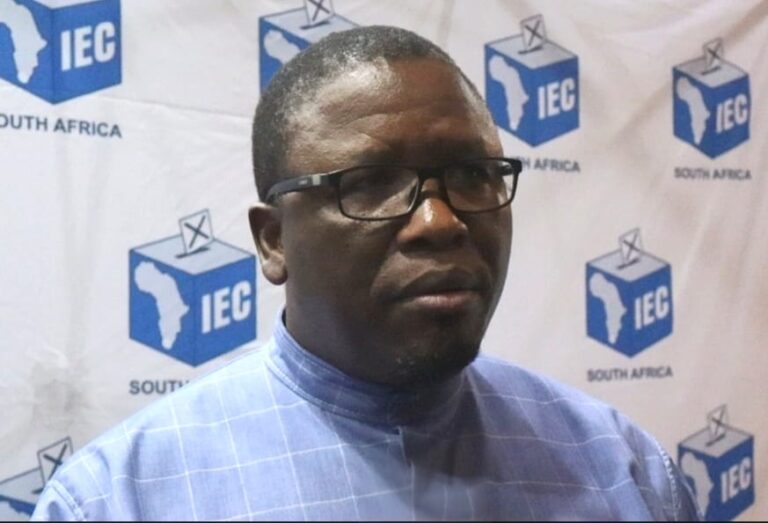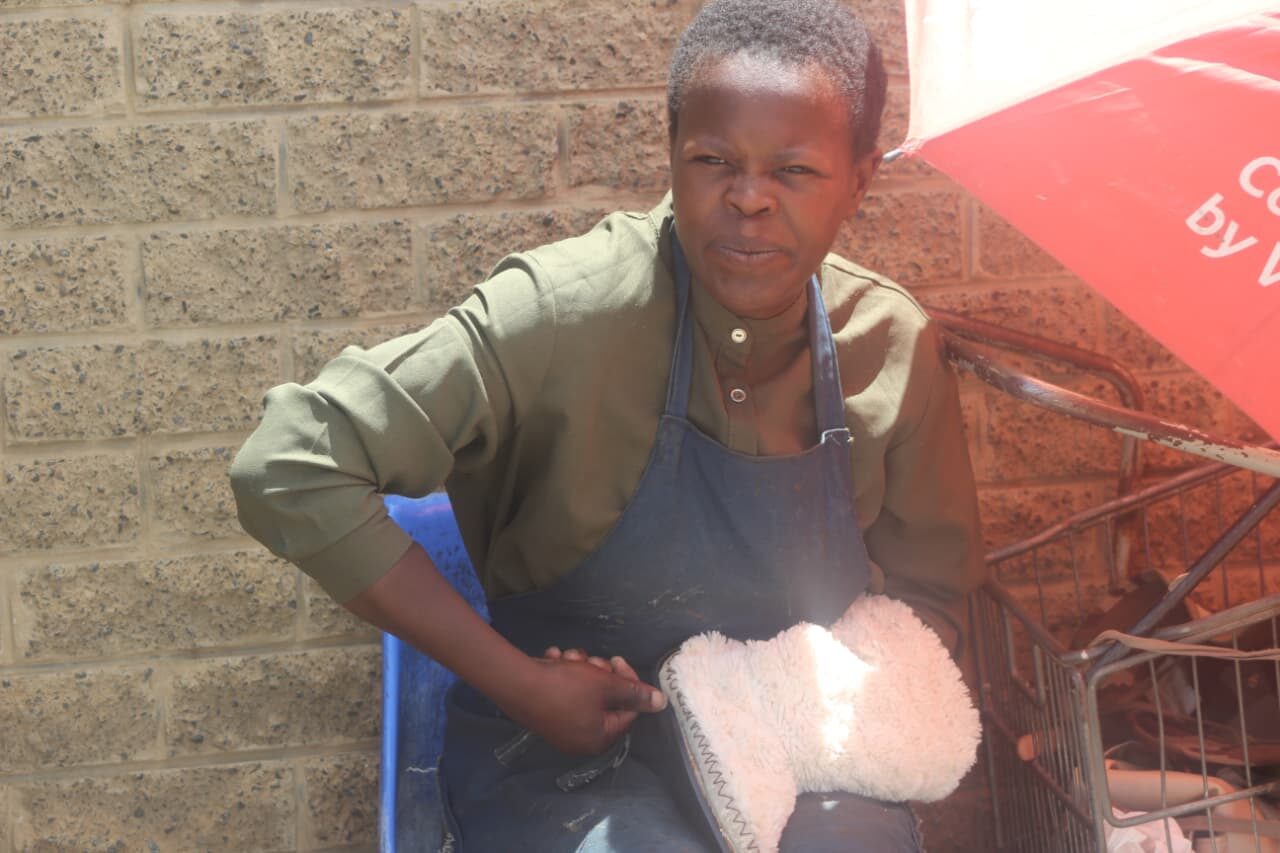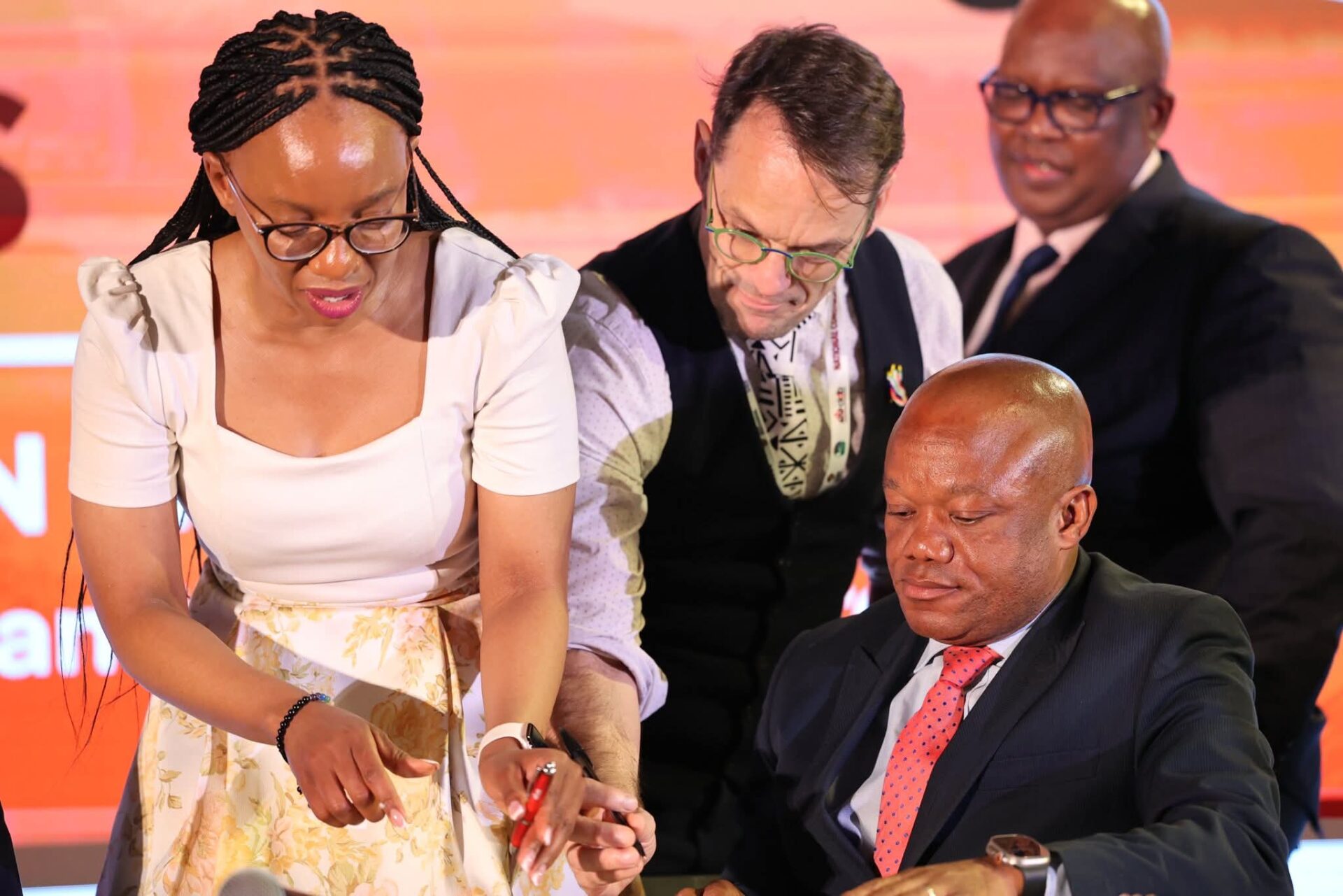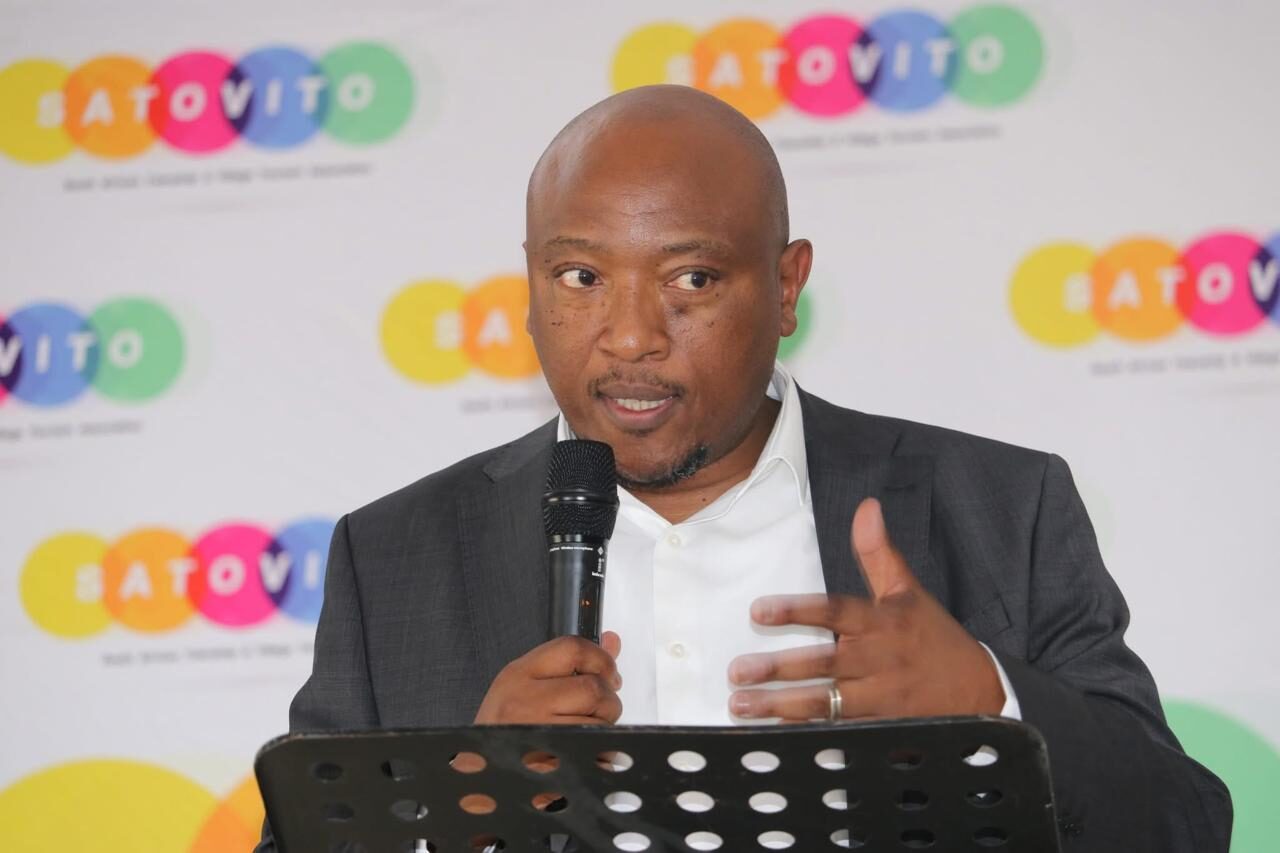By Emily Setona
QWAQWA – The long-awaited launch of the Textile Agrimark in Phuthaditjhaba marks a transformative step in empowering small businesses in the textile industry. Spearheaded by the Department of Economic, Small Business Development, Tourism, and Environmental Affairs (DESTEA), this initiative introduces the Cluster Development Strategy for Emerging Small Businesses—a model designed to foster collaboration and sustainable growth among textile entrepreneurs.
Speaking at the launch on March 20 in Phuthaditjhaba, Free State MEC for DESTEA and Finance, Ketso Makume, emphasized the power of collective effort in business success.
“Even if people form cooperatives or business groups, they must still work together with others in the same trade. The Cluster Development Strategy ensures businesses grow through shared efforts and resources,” he said.
During a previous visit to the area, Makume witnessed the dilapidated state of the industrial zone where many small textile manufacturers and seamstresses operate. Recognizing the urgent need for intervention, he announced renovations to improve working conditions.
The upgrades include:
Fixing leaking roofs to protect workspaces from rain; improving sanitation facilities, replacing makeshift solutions; addressing electrical hazards to enhance safety; and.
Reconfiguring workspaces for a more structured environment.
Sydney Mathe, the contractor overseeing the renovations, detailed the scope of work:
“We will repair the leaking roof, fix the toilets, and resolve electrical issues, as some of the wiring is unsafe. Additionally, we’ll partition workspaces to create a more functional and organized environment for textile workers.”
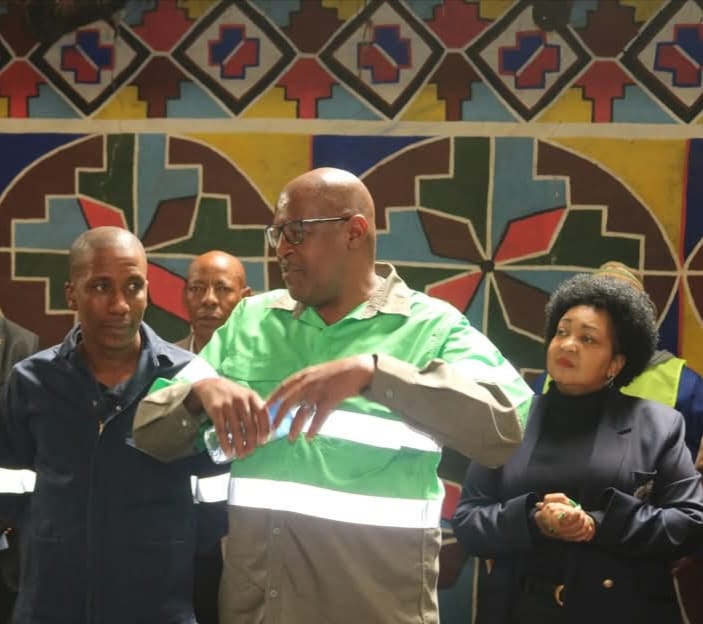
In the middle FS MEC of DESTEA and Finance Ketso Makume with MAP executive mayor Malekula Melato on his left and Sydney Mathe the main contractor at the textile agrimark on his right.
For many small business owners in the textile sector, the launch of the Agrimark and the promised renovations bring long-awaited relief. Caroline Mokoena, a member of Tshipamang Cooperative, expressed her excitement:
“We’ve worked here for over 15 years without proper toilets—we’ve had to rely on makeshift buckets. Hearing that this space will finally be renovated is a huge relief.”
Local authorities also see this initiative as a game-changer. Maluti-a-Phofung Executive Mayor, Malekula Melato, applauded the project:
“What MEC Makume and DESTEA are doing is remarkable. The hardworking women and men in this industry are finally getting the support they deserve. This project will create employment opportunities and improve livelihoods.”
The launch of the Textile Agrimark and the implementation of the Cluster Development Strategy mark a turning point for Phuthaditjhaba’s small textile business community. With government support, improved infrastructure, and a collaborative approach, local entrepreneurs are now better positioned for long-term success.
As renovations progress and business clusters strengthen, the future looks bright for the textile industry in Maluti-a-Phofung—ushering in a new era of economic growth and job creation.







